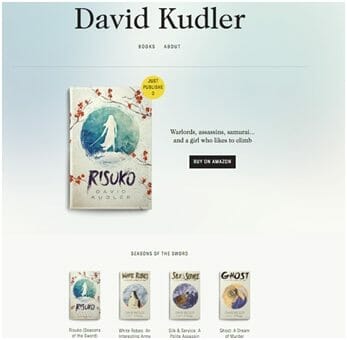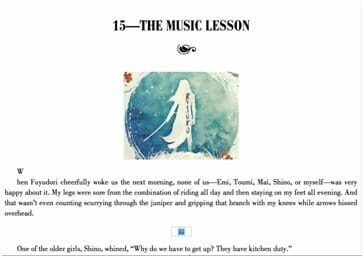By David Kudler
In earlier posts in my series on creating and selling ebooks, I’ve discussed both online ebook conversion tools and ebook retailers and distributors.
As it happens, in the months since those posts, a couple of new alternatives have come up that fall into both categories. This time around, I’ll be discussing two new ebook aggregator/distributor sites and their conversion options: Pronoun and PublishDrive.
(Do check out those earlier posts for information about aggregators like Smashwords, Draft2Digital, Aer.io, BookBaby, and more.)
Pronoun
Publishing site: https://books.pronoun.com
File formats accepted: ePub, docx
Cut: 0%
Royalty: 70% of retail price. No transport fee
Term: Payable monthly, forty-five days after the end of the month in which the sale occurred.
Distribution: Amazon, Apple, Barnes and Noble, Kobo, Google Play
File download: mobi, ePub
Edit online: None
Conversion fee: None
Distribution
A few years back, an early online ebook conversion company called Vook went out of business. This past year, Macmillan Publishing (one of the Big 5 traditional publishing conglomerates) repurposed Vook’s technology and created Pronoun, a site that offers a number of useful services to indie authors and publishers.
First of all, Pronoun allows you to track performance on any book you’d like — your own or someone else’s. It will send you regular reports on the title’s Amazon ranking, as well as suggestions about categories where the title might be better suited and more competitive. It’ll let you know when you crack the top 100 in any Amazon category, and when you receive a new Amazon review. Very nifty — though you get a report on each book in a separate email, which can be annoying if you have more than a few books.
Second, you can use Pronoun to create a free landing page for yourself as an author, as well as for each of your books. The landing pages include the option to add links to any or all of the five largest English-language ebook retailers:
- Amazon’s Kindle Store
- Apple’s iBooks Store
- Barnes and Noble’s Nook Store
- Rakuten’s Kobo
- Google Play
If you don’t have a website with a dedicated retail page, this can be a nice and relatively easy way to build one.

Third, and most to the point of this article, Pronoun will distribute your ebooks directly to those same five retailers. This is similar to what a number of other aggregators do; what makes Pronoun’s service unique is that they pass along a full 70% of cover price on all sales for all ebooks under $10 (and 65% for books priced over $10).
This is, in fact, at least as good if not better than the return you could get publishing your own ebooks on any of those five retailers’ own self-publishing sites.
- Amazon pays 70% minus the $0.15 per megabyte “transport fee” for ebooks priced $2.99 to $9.99, while paying 35% for lower- or higher-priced ebooks.
- Apple and Kobo pay 70%.
- B&N pays 65% between $0.99 and $9.99 and 40% over that.
- Google Play pays 52% (though when you figure in their automatic discount, it actually comes out to about 60%).
Pronoun pays that full 70% royalty even on ebooks priced below $2.99.
The service even allows separate pricing in a number of major currencies.
As you create your book, Pronoun offers a number of nifty features, including showing you your cover next to others in its category, as well as suggesting less crowded categories and more effective keywords. Nice!
In addition, all you have to do to get a book listed as permafree with all five retailers is flick a switch.
Now, how Macmillan is making money on this exchange, I’m not sure. My friend Anne Janzer, an indie publisher who has some brilliant things to say about marketing, theorized on the Smart Marketing podcast a few weeks back that they were using the data gathered by all of those indie sales to create new services and models — the way Google used all of the data they collected watching our searches.
In any case, there don’t seem to be very many reasons not to publish through Pronoun in order to reach the five largest outlets for English ebooks. Still, here are some negatives:
- If you publish to Amazon through Pronoun, you can’t advertise your ebook using Amazon Marketing Services
- Nor — obviously — can you list the title through the exclusive KDP Select/KindleUnlimited program
- You don’t have fine-grain control over pricing: prices are available only in amounts ending in $0.99[1]
- You can’t add retailer-specific links (to review your ebook on Amazon, for example)
Still, in many cases, I’m now recommending that my clients distribute to the big retailers through Pronoun. It’s much easier having only one site to work on, [2] and unless one of the negatives I listed above is a deal-breaker, it makes sense to go with the easy site that pays the best.
(Obviously, all of this is subject to change, so check their terms before you sign up.)
Conversion
Pronoun’s conversion tool is, as I mentioned before, based on the Vook conversion engine — which, like Smashwords’s “Meat Grinder” seems to be based on the open-source software Calibre. Once you’ve entered the basic metadata (title, author, etc.), you upload your Word document (DOCX only — DOC need not apply).
Pronoun will then ask which of six templates you want the ebook to follow:

These are all serviceable formats, and for a piece of straight narrative (a novel or narrative non-fiction, say) certainly will work. For anything more complex…
Well, let’s take a look at how Pronoun handled my test document, a chapter from my novel Risuko. Here’s the document I’ve used to test conversion tools:

Notice the inset image, the drop cap, the brush fonts — all intended to be difficult to convert.
Pronoun’s conversion was better than most:

Still not great, though. Notice that image of the girl playing a flute is completely gone, and it’s placed on its own line rather than having the text flow around it. The drop cap is placed in its own paragraph with no additional formatting. The header image is correct, however, and the chapter title, while not in the brush font that I specified, is still attractive.
Looking at the underlying code, the HTML seems to be relatively clean. If I wanted to edit the ePub file and change some of the CSS styles, I could easily do that.
Of course, it would be just as easy — if not easier — to convert the ebook myself, make it look the way I want it to, and then upload the ePub file. Just saying.
If you upload an ePub file, however, it must pass epubcheck validation.
PublishDrive
Publishing site: https://publishdrive.com
File formats accepted: ePub, doc
Cut: 10%
Distribution: Amazon, 24symbols.com, Barnes & Noble, Bookline.hu, Bookmate.com, BookShout!, casadellibro.com, ciando.com, CNPeReading, e-letoltes, E-sentral.com, Ekonyv.hu, Elefant.ro, Gardners.com, Google Play Books, iBookstore (iTunes), ipubs.hu, Kobo, Libri.hu, Lira.hu, Multimediaplaza.com, Odilo.es, overdrive.com, playster.com, redshelf.com, rockstand.in, Scribd, Tolino, tookbook.com, tradebit.com
Term: Payable monthly, forty-five days after the end of the month in which the sale occurred.
File download: ePub
Edit online: None
Conversion fee: Upload to receive quote
Distribution
Another distribution service I’ve been trying out recently is Hungary’s PublishDrive. The interface isn’t quite as intuitive as Pronoun’s, and unlike Pronoun they take a 10% cut. However, they do distribute more broadly than Macmillan’s US-centric solution, which is an advantage.
Their distribution list is extensive, and includes not only our favorite five retailers, but a number of international outlets, including retailers in Europe (especially Central and Eastern Europe) and Asia. Most of interest is the fact that they offer titles for distribution to library services including Overdrive, Odilo, Tolino, and more. [3]
In point of fact, the distributor PublishDrive most closely resembles is one of my favorites, Smashwords. There are a few differences:
- PublishDrive doesn’t have its own retail site
- PublishDrive distributes directly to Amazon[4]
- Smashwords doesn’t have quite as broad a distribution list[5]
- PublishDrive is in Hungary, and if you need help, it’s likely to take a bit longer
Honestly, the differences are mostly a matter of preference.
One way in which PublishDrive does do a better job, from my point of view: the process of uploading an ePub file is fairly straightforward (though once again your ebook must pass epubcheck). Smashwords, in attempting to maintain quality, often flags well-designed, valid ebooks for not following their strict style guidelines.
Conversion
Another way in which PublishDrive differs from many of the distributors that I mentioned in my earlier post is that they charge for ebook conversion. They’ll give you an instant quote: just upload a Word Doc file and you’ll see an estimate.
I uploaded the full text of Risuko, which is about 70,000 words, contains about half a dozen images and as many hyperlinks.
The estimate they gave me was around $170.
You’ll forgive me: I didn’t feel as if researching the quality of their conversions was worth that price.
In conclusion, here’s how I’ve been going about distributing my ebooks for the past couple of months:
- If I want to use KDP Select/KindleUnlimited or advertise through AMS, I upload directly to Amazon
- I upload to Pronoun (opting out of Amazon if need be)
- I upload to PublishDrive (opting out of Amazon, Apple, Google, Kobo, and Nook) [6]
Just two (or possibly three) uploads, and my ebooks are available just about everywhere in the world in a matter of days. That means less time spent logging in, less time updating prices and files, less time tracking sales — and all without losing any revenue.
Nice!
[1] This became a problem for me recently when I had a BookBub featured deal going. I’d lowered the title to £0.99 (the lowest I could go without it being free), but because Kobo added VAT, the price was something like £1.27. BookBub wouldn’t link to the book on Kobo UK. Not an enormous loss, but still…
[2] And Pronoun’s interface is much better thought through than any of the retailers.
[3] Just because PublishDrive offers them doesn’t necessarily mean the library service will pick them up. My luck so far has been pretty good.
[4] Though I would recommend you upload to KDP yourself — or use Pronoun.
[5] Though an English-language ebook is unlikely to have huge sales in many of those smaller bookseller sites. And both Smashwords and PublishDrive offer broader distribution than does, for example, Draft2Digital.
[6] I still love Smashwords. Really. I do. But the only reasons I’ve had an ebook bounce from PublishDrive have had to do with epubcheck failures — things I should have gotten rid of before uploading. I’ve spent too much time getting rid of tables and other complications that are Smashwords no-nos
Photo: Bigstockphoto.com


